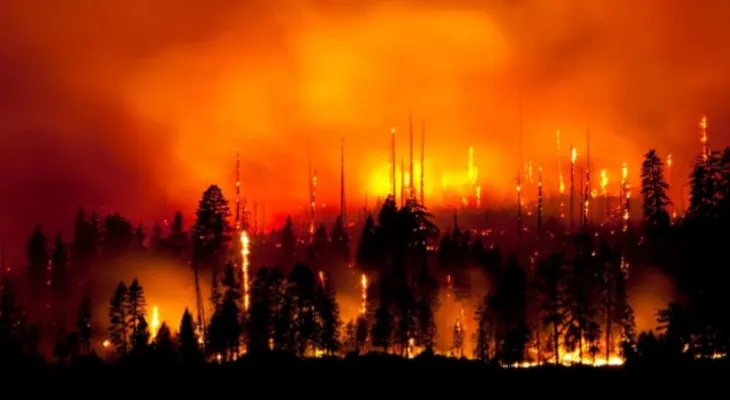Search here
Newspaper
Search here

Arab Canada News
News

Published: December 5, 2023
Fire chiefs from across the country will arrive in Ottawa this week to warn the federal government that staffing shortages, coordination, and equipment "will severely" impact officials' ability to handle next year's wildfire season.
Ken McMullen, head of the Canadian Association of Fire Chiefs (CAFC), told CBC News: “Fire chiefs often don't sound the alarm.” "We are very concerned about this impending crisis that summer 2024 will bring to our sector."
"We will keep asking for more from fewer people, and there will be a cost. It is unsustainable."
The 2023 wildfire season was the worst in Canada's history; so far this year, 18.5 million hectares have burned. The 10-year moving average for wildfire damage is about 2.8 million hectares annually.
In light of this situation, more than 40 fire chiefs will meet on Tuesday and Wednesday with various officials to demand more financial assistance.
Also, according to the CAFC, about 9,500 volunteer firefighters will leave the sector in 2023. According to the CAFC census, in 2022 there were about 126,000 firefighters in Canada, of whom about 90,000 worked as volunteers.
The association explained that volunteer firefighters have few resources, and just under a third reported that they pay out of pocket for equipment, tools, gasoline, and other supplies.
The CAFC is asking the federal government to increase the tax exemption for volunteer firefighters from $3,000 annually to $10,000, and McMullen said fire chiefs also want to appoint more full-time firefighters.
The association also said that about 30 percent of all firefighters in Canada, or just over 38,000, are over 50 years old and approaching retirement, compared to only 31,000 in 2022.
Aging workforce is a growing problem, according to McMullen, because most municipal insurance documents do not insure frontline firefighters once they reach the age of sixty.
"It is a very clear sign that we need to do something to recruit and attract people in both the professional and volunteer sectors."
Fire chiefs also warned that old equipment makes their jobs more difficult and that 54 percent of Canadian fire departments delay purchases due to financial pressures. Nearly 41% of fire departments reported delaying equipment purchases last year.
According to the CAFC, about a quarter of Canadian fire departments use heat protection clothes and equipment older than 10 years, and nearly two-thirds of departments have fire engines over 15 years old, which is the recommended end of their productive lifespan.
Comments